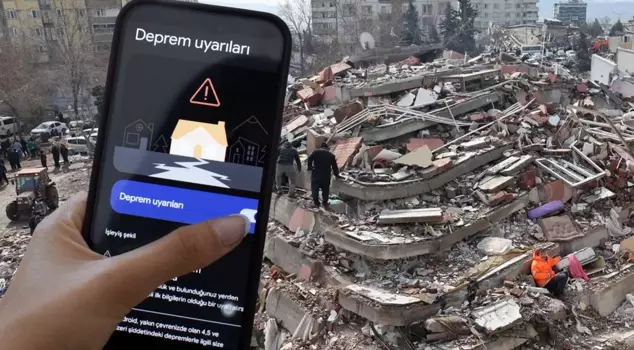
27.04.2025 11:51
The Chairman of the Cybersecurity Commission of TÜKONFED, Muharrem Baki, stated that there has been a significant increase in fake earthquake early warning applications developed by malicious individuals who are taking advantage of the earthquake. Baki noted that these applications, which pose cybersecurity risks, aim to install fake software on phones and capture personal data.
CONSUMER Confederation (TÜKONFED) Cyber Security Commission President Muharrem Baki stated that there has been a serious increase in fake "earthquake early warning" applications developed by malicious individuals who want to take advantage of the increased need for information following recent earthquakes.
BEWARE OF FAKE APPLICATIONS
Muharrem Baki pointed out that such applications put citizens at risk both digitally and physically, and issued warnings. Baki said, "We need to be cautious about early information warning systems that may emerge after an earthquake. These systems claim to warn us seconds or even minutes before an earthquake. Of course, there are examples in the world that work this way, but what we need to be careful about are the fake applications that try to market themselves with advertisements."
PHONES ARE TURNING INTO MOBILE SEISMIC SENSORS
Explaining how earthquake early warning systems work, Baki stated that small tremors can be detected thanks to the accelerometer sensors located in phones. He noted that the application uses these sensors to turn millions of devices into a kind of mobile seismic sensor network, and when multiple devices in the same area detect tremors simultaneously, this data is transmitted to their servers. Baki explained that the obtained data is compared in a central system, and if a sufficient number of devices in the same area record similar acceleration movements and these tremors meet the definition of a destructive earthquake, the application sends an instant warning to the devices in that area.
THEY AIM TO CAPTURE PERSONAL DATA
Baki expressed that fake earthquake applications do not only spread false information but often infect phones with harmful software. He stated that such applications can access sensitive data such as camera, microphone, and location, and in some cases, aim to generate revenue by directing users to advertisements with fake notifications. Baki also mentioned that these applications aim to install fake software on phones and capture personal data.
"THERE IS NO OFFICIAL MOBILE WARNING SYSTEM IN TURKEY"
Baki stated that there are government-supported earthquake warning systems in the US and Japan, which have examples around the world, saying, "In the US and Japan, the seismic measuring devices established by the government transmit this warning to devices, computers, and phones. However, there is currently no such system in Turkey."
"IT IS BENEFICIAL TO RESTRICT PERMISSIONS LIKE LOCATION AND MICROPHONE"
Stating that state-based early warning systems are not yet active in Turkey, Baki emphasized that caution should be exercised towards applications that claim to provide instant notifications, and the permissions requested by these applications should be reviewed. He pointed out that applications that unnecessarily request permissions such as location, microphone, contacts, and file access should be avoided, saying, "It is beneficial to restrict permissions like location, sound, video, and microphone on our phones. However, we need to keep notifications and location open so that the incoming notification can reach us and our location." Baki concluded, "As dangerous as the fear of earthquakes is, so is our digital security. Your digital security is as important as your physical security."